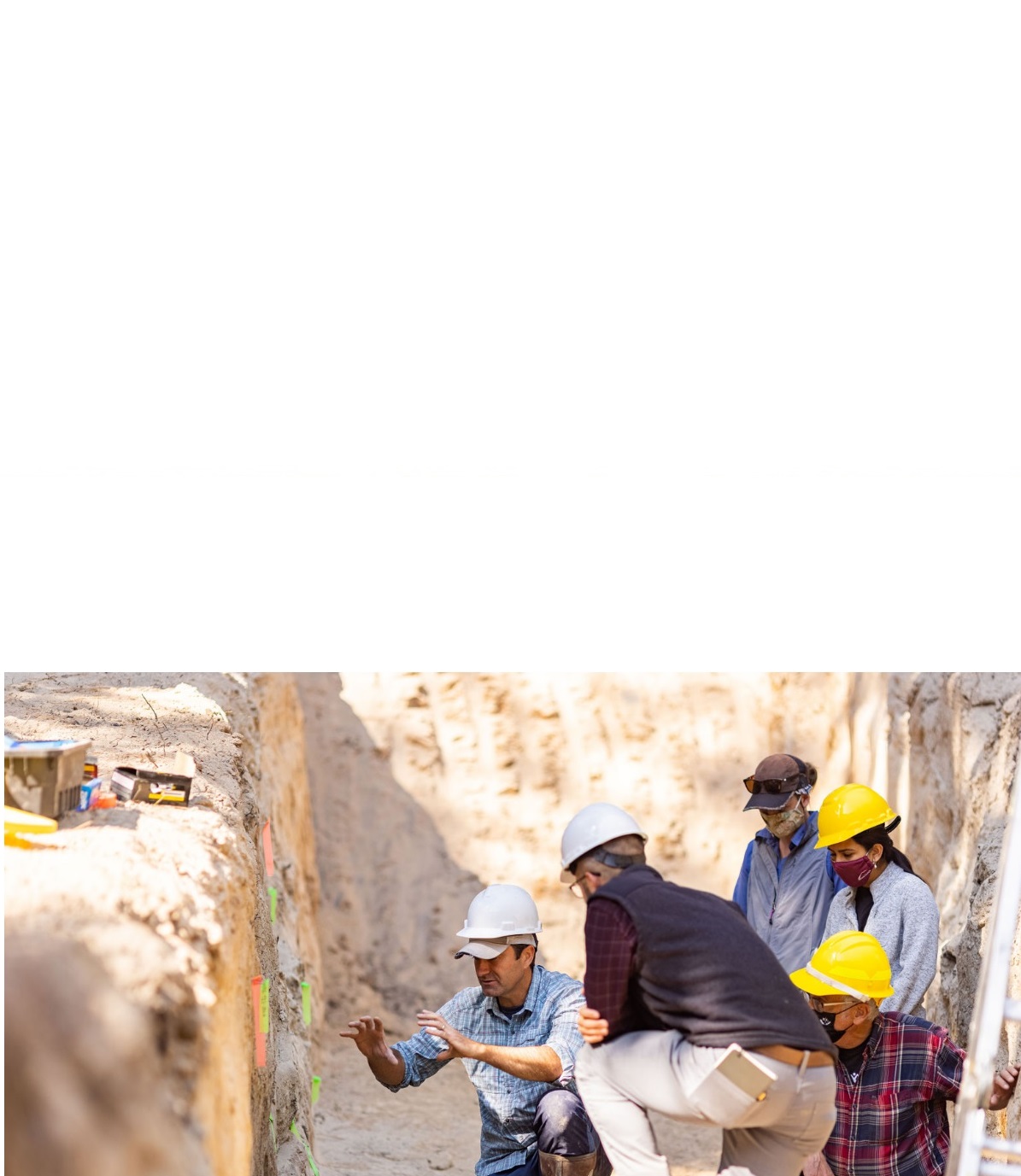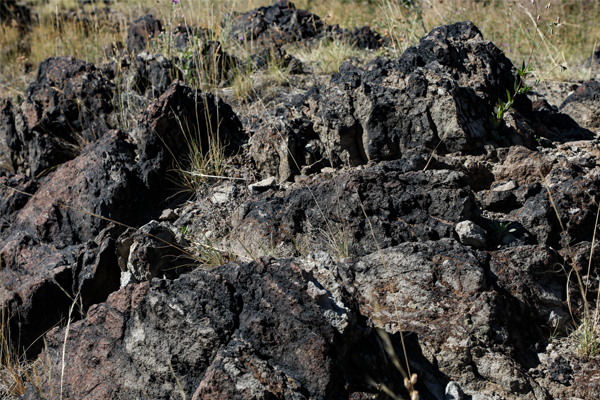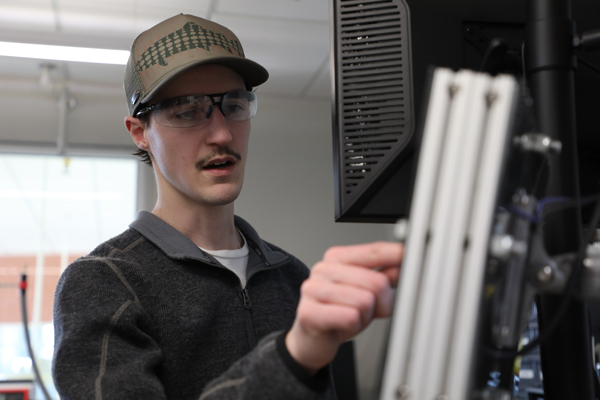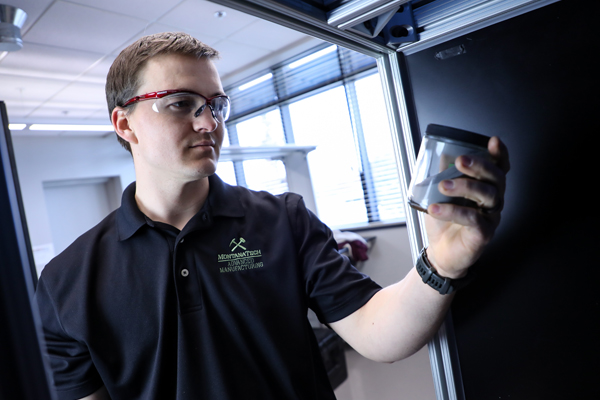
Geoscience, Geology Option, M.S.
Why Study Geology at Montana Tech?
The geology degree features a research-based curriculum, that allows students to tailor their learning to their interests. For example, recent graduate students in this option have investigated the origin of hydrothermal talc mineralization in SW Montana, water-rock interaction and acid mine drainage in Butte, and the bio-geochemistry of natural wetlands near abandoned mines. You'll learn from industry-experienced — and connected — Montana Tech faculty who are passionate about helping you succeed in hydrogeology. You'll be prepared for hydrogeology careers or to pursue your Ph.D in Earth Science and Engineering at Montana Tech.
Outstanding Faculty
The Geological Engineering Department at Montana Tech has distinguished faculty members who all hold Ph.D. degrees in subdisciplines including Civil Engineering with Geotechnical emphases, geochemistry, hydrogeology, and stratigraphy. Each faculty member has significant industrial experience they bring to the classroom, laboratory, and field site.
World-Class Geology Labs
You have plenty of hands-on learning opportunities at Montana Tech. With access to state-of-the-art and fully equipped laboratories, our geology degree students will graduate learning how to operate sophisticated laboratory and field equipment. Our geological engineering department is home to state-of-the-art facilities including a triaxial testing lab, an underground mine facility, and geotechnical and groundwater modeling software.
Geology Internships
Obtain even more hands-on experience through geology internships to supplement your bachelor's degree from Montana Tech. Through our annual Career Services events, you'll have access to more than 100 companies that come to campus to recruit Montana Tech students for geology summer internships for continuing students and full-time employment for our geology graduates.
Exceptional Location
By choosing Montana Tech for your geology degree, you'll benefit from our location in Butte, Montana. You can tour local engineering operations and pursue geology internships in Butte as well as in nearby cities such as Bozeman and Missoula. Plus, you'll also have innumerable opportunities to enjoy Montana's great outdoors in your free time.
Thesis and Non-Thesis Option
You can earn the Geoscience, M.S. option in geology with by taking 30 credits and completing a thesis or publishable paper, or by taking 36 credits, without a thesis or paper.
Study Geology and Have Fun Too
Get involved in various clubs and organizations on campus. Or enjoy the expansive nature Butte, Montana offers for year-round activities. Ski at nearby resorts or in the backcountry, enjoy local hot springs, hike the Great Divide, or fish in pristine mountain streams.
Be Ready for a Career in Geology
Through this rigorous geology degree you’ll not only gain the knowledge and skills you need to succeed. You’ll also develop communication, interpersonal, and project management skills. From Montana Tech’s engaged geological engineering faculty to Career Services, you’ll have the resources, support, and connections you need to land coveted internships and jobs and receive a top geology salary.
Admission Requirements
You will need a B.S. in Geological, Mining, Geophysical, or Civil Engineering. Course prereqisites include physical geology, mineralogy, petrology, sedimentology, and introduction to field geology.
What is Geology?
A Master of Science in Geoscience with an “Option in Geology” allows specialization in many fields of Applied Geology. Applied geologists tackle humanity's problems that are tied to geological factors.
What Types of Jobs Do Geology Graduates Get?
All recent MS graduates in Geology have found employment in their chosen field. Career opportunities for geologists with an M.S. degree are diverse, and include State and Federal government agencies (e.g., Montana Bureau of Mines and Geology, USDA Forest Service, US Bureau of Land Management), resource extraction industries (mining, petroleum), and private consulting companies.
For geoscientists, 2021
About the same as most other career fields
Explore Classes for the Geology Degree
The thesis option requires 30 credits, with a minimum of 15 at the 500 level, and the remainder at the 400 level. The non-thesis option requires 36 credits, with a minimum of 18 at the 500 level, and the remainder at the 400 level. Course schedule is determined in cooperation with a faculty advisor.
Meet faculty, explore our research expertise, and more.
Get semester-by-semester info about hydrogeology courses.
The NSF, Army Research Lab, and other top institutions regularly fund our faculty and scholars.

The Doctor of Philosophy in Earth Science and Engineering, builds on engineering and science BS and MS programs and the Montana Bureau of Mines and Geology. Become an expert in your field.

This distance learning program is designed to give working professionals an opportunity to enhance their technical and managerial skills with minimum disruption to their workday.

This degree provides an avenue for professional advancement and licensure. Choose from 12 specializations, including Civil, Electrical, Environmental, Geological, Geophysical, Geotechnical, Hydrogeological, Mechanical, Metallurgical/Minerals, Materials, Mining, and Petroleum.
We can answer your questions and help you get started.
Professor and Department Head
gshaw@mtech.edu
406-496-4809